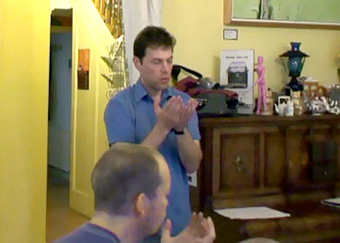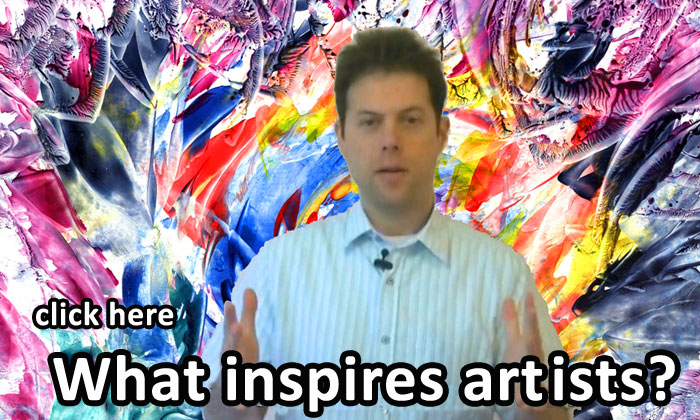During my PhD research at the University of Portsmouth I have noted that not only artists and art students can be creative and innovative, but that every single person has the potential to ‘tap’ into creativity. Creativity and inspiration unfold in every aspect of life.
My practice-based PhD research looked into the subject of creativity and inspiration, proposing hands-on techniques to access one’s talents and opening doors to innovation. These techniques were tested with artists and non-artists alike, and proved beneficial to anyone who is willing to ask: “who am I, and how can I be more innovative?”…
The resulting PhD study can also help students develop research skills with a mature approach to academia. By helping students learn to find their own abilities and creative skills – following the great adage ‘Know Thyself’ – students can crystalize who they are, and what they can do best.
The PhD offers new practical research tools, such as The Streaming Knowledge Method, along with critical exploration of works from the world of art and design. This helps to simplify and exemplify the creative process that operates in the mind and the heart of artists; the inner states of being inspired to create.

‘The Collective Hearts’ Workshop, with facilitator Gil Dekel.
I have researched across spectrums of the arts, design, new media, social sciences, engineering, psychology, philosophy, Quantum physics, as well as spiritual teachings – to show how creativity is achieved within an academic framework. Research methods incorporated include: auto-ethnography, phenomenology, participant observation, grounded theory, and narrative interview.
Prior to the research I was travelling worldwide and have lived in various countries. I have experienced different cultures and different ways of communicating. I have noted peoples’ perspectives, potential and talents, and channelled it into various works that I have produced: art installations, films, graphic messages, poetry, and academic works that can be understood and communicated in a clear concise manner.
I teach colleagues to think, to ask questions and most of all: to look at what resources they already have and how to utilize them. This is my specific new contribution to knowledge.
On a personal level I am dedicated to inspire people and bring out what they have into their work, so that they are motivated and interested in what they are doing. In that way, we’re not just teaching the curriculum to people who want to complete a degree quickly; rather we are creating motivated, focused students that are interested and enjoying the process of their study. Equipped with such enthusiasm and self-awareness, students can truly make a difference in the world, and bring their original contribution to work, rather than being a part of a fashionable and limited circulated agenda.
Read the full thesis here [opens in a new window].
27 July 2010. Last update 14 Jan 2019.



 - Reading with Natalie, book here...
- Reading with Natalie, book here...